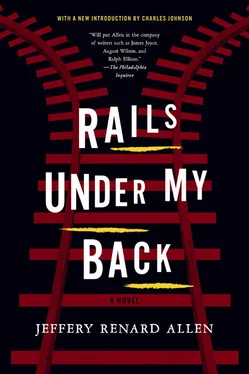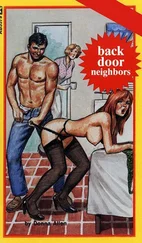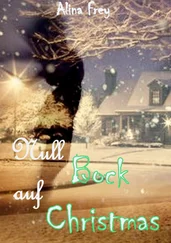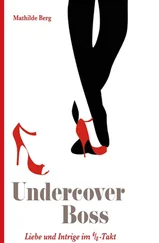Well, I’ve given up chasin women.
I leave you there.
But I’ll still go to a bar—
Dave, damn if we don’t know that already. You a drinkin fool.
— have me a taste and talk to the womens. They’ll give you some too, if you know how to talk to em right.
HE DIED TEN YEARS AFTER SHE CAME BACK.
No, it was fifteen.
You can’t never get nothin straight.
Look who’s talkin.
We can look at the death certificate.
Why don’t you go get it.
I would if you hadn’tah lost it.
I ain’t lost nothing.
That ain’t what I recollect.
I don’t give a damn—
Yall stop that arguin, Beulah said in her usual shrill voice. All yall do is argue.
You always agree with her, Gracie said. You always have.
I ain’t tryin to take nobody’s side.
You jus like Lula Mae. Take Sheila’s side in everything.
Shut your damn mouth! Sheila said. All that happened a long time ago. What can I do about it?
THE ROAD HISSED under the black tires. They rode in the black limousine, silent as the dark they traveled through. The sun had fallen but the heat had not let up. The dark had absorbed it like black cotton.
THEY STOOD IN THE ROAD under the failed sky. Sheila passed Reverend Blunt a tip, slipping him the money quickly.
Why, thank you. Reverend Blunt had changed into a fresh suit. He smiled into Porsha’s eyes. I’ll drop by tomorrow and see how yall doing.
Porsha returned the smile.
Good night. Reverend Blunt charged up the road.
Why you do that? Hatch said.
Sheila said nothing.
Why you give that bastard a tip?
HATCH STEPPED INTO A HOUSE FULL OF MOVING VOICES.
You must be her granson. Is that her granson? Is he her granson? Why I ain’t seen him since he was nay high. Where that other one, that red-lookin one? Her granson sure a handsome one. We gon miss yo granmother. Look, there Gracie’s boy. A fine woman. I’m gon sho miss her. Ain’t he the devilish one? You remember me? Why, I ain’t seen you since I know when. Any kin to Lula Mae kin to me. You come down here to visit me anytime you want. Come on by my house and sit a while befo you go back. I bet you like pecan pie? You a fine young man. You a handsome young man. Look like yo daddy. You come down here to visit anytime you want. I live jus up the road there. You member where I live? Drop by and sit a while.
He couldn’t wait for the house to clear of people. Juiced out by the sun, he needed sleep.
He found quiet escape in the kitchen. He would have shut the door but there was no door to shut. He thought about all he had seen and said and heard and done all that he had not seen said or heard or done and all that he would see say hear and do.
Well, he said, if you ain’t never been nowhere other than Kankakee, here, and West Memphis —
I been more places than that, Porsha said.
— Tucumcari might as well be Arizona and Arizona Brazil and Brazil might as well be France and France California and California Texas and Decatur New Mexico and —
What map you lookin at?
He saw Mr. Byron standing and pointing and spitting his name. The past that wasn’t past sparkled like a reminder above the kitchen shelf. Lula Mae’s old serving set. He remembered it from his many trips here. She had purchased it in either Texas or New Mexico. The cocktail bowl showed a rodeo scene. The lid made like a cowboy hat, a Stetson. The ice tray was a chuck wagon held in place by black wire wheels. A coffeepot sat on a black wire stand with four matching coffee mugs. Each piece glassed in a western yellow-brown. The serving set had been waiting for him all these years. Waiting for his return.
Why are you sittin in here by yourself? Sheila spoke from the open doorway.
I want that.
What?
That dinette set. Hatch pointed up to it.
Well, get up and get it. You better put it up before Gracie see it.
TREES STOOD LIKE AN ARMY in the clear morning air, their leaves glowing rivulets of lava.
His sweat-dampened saddle fit easily into the horse’s back. A horse can tell if a man is strong-willed. Give him a chance and he’ll stand on your foot and let you know who’s in charge.
He climbed on the horse in proper fashion and tightened his legs around the iron belly. He kicked the horse into motion. Man and horse galloped off in a mute cloud of dust. Ponds like glistening uniform buttons. Word of his talents had spread far. More than once he had talked gently, sweetly, and rubbed a calf’s legs all night long.
The speed of the gallop watered his eyes. He looked into the shimmering distance and told his horse things about the world he knew to be true. The horse blew and rolled its eyes at all it saw.
PORSHA ROSE BEFORE THE OTHERS and moved quickly through Lula Mae’s house, her quiet hammer taking down the horseshoes nailed above Lula Mae’s doors. Each and every one of them. These she would have for herself. Luck. Magic doesn’t fade. Maybe the magic could work for her, work in her life.
YOU CAN’T MISS WHAT YOU AIN’T NEVER HAD, Gracie said.
It’s passed, Mamma said. What can I do about it? I’ve had forty years of dealing with that misery. Go on with your life.
You go on with yours.
THE LIL HOUSE was much smaller than Porsha remembered. Half the length of a city subway car. And even smaller inside, boxes and more boxes where seats might be, the space between the boxes only wide enough for one person to stand comfortably. She, Mamma, and Hatch rummaged through Lula Mae’s belongings while Gracie stood in the grass watching through the open doorway.
Gracie, why don’t you stay in the house and keep an eye on Beulah.
Why don’t you.
The lil house had four small windows, all rusted shut. (Lula Mae had never opened them.) The open door offered the only light and air. Hatch had pleaded, begged to light one of Lula Mae’s kerosene lamps and all had agreed, but the lamps were empty, long minus kerosene. No one could find a flashlight. So they worked in the metal dark and the heat, hauling out goods to the sun-heated lawn, cataloguing them by location on the grass.
Mamma discovered her wedding dress, Hatch’s blue baby bonnet, Jesus’s first rattle, Porsha’s paddle-and-ball, Cookie’s bib (Gracie wanted it), unidentified wigs, and Lula Mae’s first partial, false teeth.
Look at this, Hatch said. He held up a green duffel bag by its canvas straps like a dead rat by its tail.
I believe that’s Mr. Pulliam’s old army bag, Mamma said.
I’m gon keep it.
Let me see it, Gracie said.
Hatch played deaf.
Porsha tunneled through hatboxes and shoeboxes. Lula Mae had thrown nothing away. She opened the last shoebox and found a mummified pair of shoes, peeling white leather that had long gone gray. She lifted the shoes from the box by the laces and found a thick, business-sized envelope. No stamp in the upper right corner, only a pale blue postmark, like watercolor. The envelope was burned black with the shoes’ shape, the burn obscuring most of the words. She found a second envelope, twin to the first. Eyes working, she deciphered one letter, two letters, then two words or the semblance of two words. Brazil, Nebraska.
THAT WAS MR. PULLIAM’S DAUGHTER, Mamma said. She want the house.
Too bad. Lula Mae had willed her house, lil house, and everything in them to Sheila.
I told her she can have it.
Porsha cocked her ear. What?
Mr. Pulliam’s name on the mortgage.
Mr. Pulliam been dead fifteen years. Lula Mae the one who paid off the mortgage.
Mamma said nothing.
Ain’t you gon contest it?
Читать дальше












